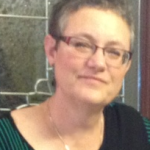My reading
Haftarat Parashat Tazria -M’tzora
2 Kings 7:3-20
7:3 וְאַרְבָּעָ֧ה אֲנָשִׁ֛ים הָי֥וּ מְצֹרָעִ֖ים פֶּ֣תַח הַשָּׁ֑עַר וַיֹּֽאמְרוּ֙ אִ֣ישׁ אֶל־רֵעֵ֔הוּ מָ֗ה אֲנַ֛חְנוּ יֹשְׁבִ֥ים פֹּ֖ה עַד־מָֽתְנוּ׃
7:4 אִם־אָמַרְנוּ֩ נָב֨וֹא הָעִ֜יר וְהָרָעָ֤ב בָּעִיר֙ וָמַ֣תְנוּ שָׁ֔ם וְאִם־יָשַׁ֥בְנוּ פֹ֖ה וָמָ֑תְנוּ וְעַתָּ֗ה לְכוּ֙ וְנִפְּלָה֙ אֶל־מַחֲנֵ֣ה אֲרָ֔ם אִם־יְחַיֻּ֣נוּ נִֽחְיֶ֔ה וְאִם־יְמִיתֻ֖נוּ וָמָֽתְנוּ׃
7:5 וַיָּק֣וּמוּ בַנֶּ֔שֶׁף לָב֖וֹא אֶל־מַחֲנֵ֣ה אֲרָ֑ם וַיָּבֹ֗אוּ עַד־קְצֵה֙ מַחֲנֵ֣ה אֲרָ֔ם וְהִנֵּ֥ה אֵֽין־שָׁ֖ם אִֽישׁ׃
7:6 וַאדֹנָ֞י הִשְׁמִ֣יעַ׀ אֶת־מַחֲנֵ֣ה אֲרָ֗ם ק֥וֹל רֶ֙כֶב֙ ק֣וֹל ס֔וּס ק֖וֹל חַ֣יִל גָּד֑וֹל וַיֹּאמְר֞וּ אִ֣ישׁ אֶל־אָחִ֗יו הִנֵּ֣ה שָֽׂכַר־עָלֵינוּ֩ מֶ֨לֶךְ יִשְׂרָאֵ֜ל אֶת־מַלְכֵ֧י הַחִתִּ֛ים וְאֶת־מַלְכֵ֥י מִצְרַ֖יִם לָב֥וֹא עָלֵֽינוּ׃
7:7 וַיָּקוּמוּ֮ וַיָּנ֣וּסוּ בַנֶּשֶׁף֒ וַיַּעַזְב֣וּ אֶת־אָהֳלֵיהֶ֗ם וְאֶת־סֽוּסֵיהֶם֙ וְאֶת־חֲמֹ֣רֵיהֶ֔ם הַֽמַּחֲנֶ֖ה כַּאֲשֶׁר־הִ֑יא וַיָּנֻ֖סוּ אֶל־נַפְשָֽׁם׃
7:8 וַיָּבֹאוּ֩ הַֽמְצֹרָעִ֨ים הָאֵ֜לֶּה עַד־קְצֵ֣ה הַֽמַּחֲנֶ֗ה וַיָּבֹ֜אוּ אֶל־אֹ֤הֶל אֶחָד֙ וַיֹּאכְל֣וּ וַיִּשְׁתּ֔וּ וַיִּשְׂא֣וּ מִשָּׁ֗ם כֶּ֤סֶף וְזָהָב֙ וּבְגָדִ֔ים וַיֵּלְכ֖וּ וַיַּטְמִ֑נוּ וַיָּשֻׁ֗בוּ וַיָּבֹ֙אוּ֙ אֶל־אֹ֣הֶל אַחֵ֔ר וַיִּשְׂא֣וּ מִשָּׁ֔ם וַיֵּלְכ֖וּ וַיַּטְמִֽנוּ׃
7:9 וַיֹּאמְרוּ֩ אִ֨ישׁ אֶל־רֵעֵ֜הוּ לֹֽא־כֵ֣ן׀ אֲנַ֣חְנוּ עֹשִׂ֗ים הַיּ֤וֹם הַזֶּה֙ יוֹם־בְּשֹׂרָ֣ה ה֔וּא וַאֲנַ֣חְנוּ מַחְשִׁ֗ים וְחִכִּ֛ינוּ עַד־א֥וֹר הַבֹּ֖קֶר וּמְצָאָ֣נוּ עָו֑וֹן וְעַתָּה֙ לְכ֣וּ וְנָבֹ֔אָה וְנַגִּ֖ידָה בֵּ֥ית הַמֶּֽלֶךְ׃
7:10 וַיָּבֹ֗אוּ וַֽיִּקְרְאוּ֮ אֶל־שֹׁעֵ֣ר הָעִיר֒ וַיַּגִּ֤ידוּ לָהֶם֙ לֵאמֹ֔ר בָּ֚אנוּ אֶל־מַחֲנֵ֣ה אֲרָ֔ם וְהִנֵּ֥ה אֵֽין־שָׁ֛ם אִ֖ישׁ וְק֣וֹל אָדָ֑ם כִּ֣י אִם־הַסּ֤וּס אָסוּר֙ וְהַחֲמ֣וֹר אָס֔וּר וְאֹהָלִ֖ים כַּאֲשֶׁר־הֵֽמָּה׃
7:11 וַיִּקְרָ֖א הַשֹּֽׁעֲרִ֑ים וַיַּגִּ֕ידוּ בֵּ֥ית הַמֶּ֖לֶךְ פְּנִֽימָה׃
7:12 וַיָּ֨קָם הַמֶּ֜לֶךְ לַ֗יְלָה וַיֹּ֙אמֶר֙ אֶל־עֲבָדָ֔יו אַגִּֽידָה־נָּ֣א לָכֶ֔ם אֵ֛ת אֲשֶׁר־עָ֥שׂוּ לָ֖נוּ אֲרָ֑ם יָדְע֞וּ כִּי־רְעֵבִ֣ים אֲנַ֗חְנוּ וַיֵּצְא֤וּ מִן־הַֽמַּחֲנֶה֙ לְהֵחָבֵ֤ה בהשדה [בַשָּׂדֶה֙] לֵאמֹ֔ר כִּֽי־יֵצְא֤וּ מִן־הָעִיר֙ וְנִתְפְּשֵׂ֣ם חַיִּ֔ים וְאֶל־הָעִ֖יר נָבֹֽא׃
7:13 וַיַּעַן֩ אֶחָ֨ד מֵעֲבָדָ֜יו וַיֹּ֗אמֶר וְיִקְחוּ־נָ֞א חֲמִשָּׁ֣ה מִן־הַסּוּסִים֮ הַֽנִּשְׁאָרִים֮ אֲשֶׁ֣ר נִשְׁאֲרוּ־בָהּ֒ הִנָּ֗ם כְּכָל־ההמון [הֲמ֤וֹן] יִשְׂרָאֵל֙ אֲשֶׁ֣ר נִשְׁאֲרוּ־בָ֔הּ הִנָּ֕ם כְּכָל־הֲמ֥וֹן יִשְׂרָאֵ֖ל אֲשֶׁר־תָּ֑מּוּ וְנִשְׁלְחָ֖ה וְנִרְאֶֽה׃
7:14 וַיִּקְח֕וּ שְׁנֵ֖י רֶ֣כֶב סוּסִ֑ים וַיִּשְׁלַ֨ח הַמֶּ֜לֶךְ אַחֲרֵ֧י מַחֲנֵֽה־אֲרָ֛ם לֵאמֹ֖ר לְכ֥וּ וּרְאֽוּ׃
7:15 וַיֵּלְכ֣וּ אַחֲרֵיהֶם֮ עַד־הַיַּרְדֵּן֒ וְהִנֵּ֣ה כָל־הַדֶּ֗רֶךְ מְלֵאָ֤ה בְגָדִים֙ וְכֵלִ֔ים אֲשֶׁר־הִשְׁלִ֥יכוּ אֲרָ֖ם בהחפזם [בְּחָפְזָ֑ם] וַיָּשֻׁ֙בוּ֙ הַמַּלְאָכִ֔ים וַיַּגִּ֖דוּ לַמֶּֽלֶךְ׃
7:16 וַיֵּצֵ֣א הָעָ֔ם וַיָּבֹ֕זּוּ אֵ֖ת מַחֲנֵ֣ה אֲרָ֑ם וַיְהִ֨י סְאָה־סֹ֜לֶת בְּשֶׁ֗קֶל וְסָאתַ֧יִם שְׂעֹרִ֛ים בְּשֶׁ֖קֶל כִּדְבַ֥ר יְהוָֽה׃
7:17 וְהַמֶּלֶךְ֩ הִפְקִ֨יד אֶת־הַשָּׁלִ֜ישׁ אֲשֶׁר־נִשְׁעָ֤ן עַל־יָדוֹ֙ עַל־הַשַּׁ֔עַר וַיִּרְמְסֻ֧הוּ הָעָ֛ם בַּשַּׁ֖עַר וַיָּמֹ֑ת כַּאֲשֶׁ֤ר דִּבֶּר֙ אִ֣ישׁ הָאֱלֹהִ֔ים אֲשֶׁ֣ר דִּבֶּ֔ר בְּרֶ֥דֶת הַמֶּ֖לֶךְ אֵלָֽיו׃
7:18 וַיְהִ֗י כְּדַבֵּר֙ אִ֣ישׁ הָאֱלֹהִ֔ים אֶל־הַמֶּ֖לֶךְ לֵאמֹ֑ר סָאתַ֨יִם שְׂעֹרִ֜ים בְּשֶׁ֗קֶל וּֽסְאָה־סֹ֙לֶת֙ בְּשֶׁ֔קֶל יִהְיֶה֙ כָּעֵ֣ת מָחָ֔ר בְּשַׁ֖עַר שֹׁמְרֽוֹן׃
7:19 וַיַּ֨עַן הַשָּׁלִ֜ישׁ אֶת־אִ֣ישׁ הָאֱלֹהִים֮ וַיֹּאמַר֒ וְהִנֵּ֣ה יְהוָ֗ה עֹשֶׂ֤ה אֲרֻבּוֹת֙ בַּשָּׁמַ֔יִם הֲיִהְיֶ֖ה כַּדָּבָ֣ר הַזֶּ֑ה וַיֹּ֗אמֶר הִנְּךָ֤ רֹאֶה֙ בְּעֵינֶ֔יךָ וּמִשָּׁ֖ם לֹ֥א תֹאכֵֽל׃
7:20 וַיְהִי־ל֖וֹ כֵּ֑ן וַיִּרְמְס֨וּ אֹת֥וֹ הָעָ֛ם בַּשַּׁ֖עַר וַיָּמֹֽת׃










